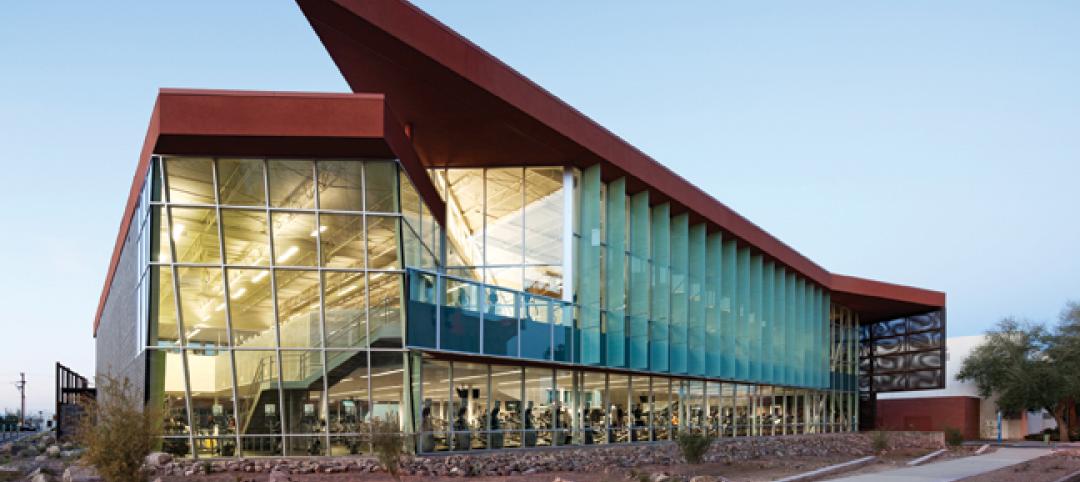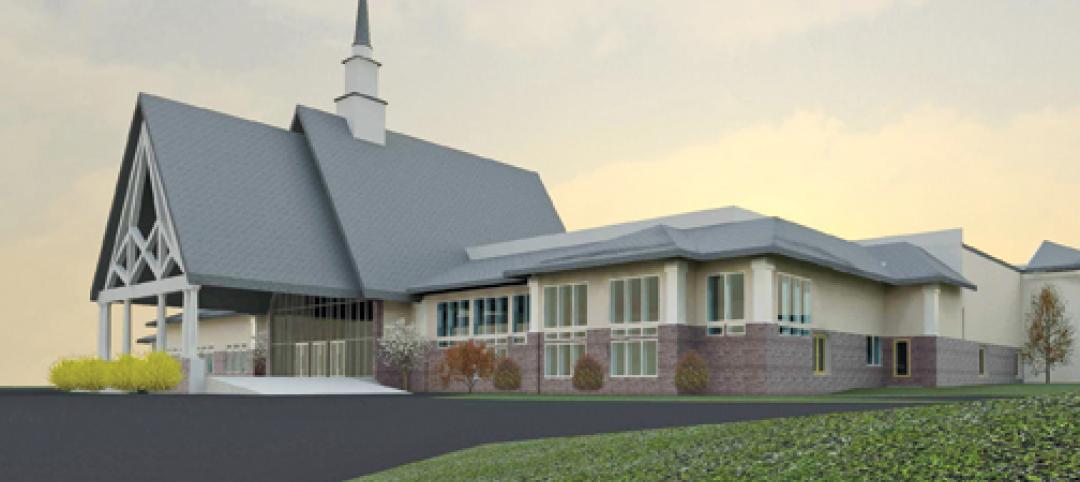Do you have the next great idea for a groundbreaking technology, model shop or building that could potentially revolutionize the future of the steel design and construction industry? Enter AISC's first-ever Future of Steel competition! The competition rewards and celebrates innovative ideas for the future of structural steel fabrication, erection, engineering, design and construction. And you have the opportunity to win one of three cash prizes, totaling $2,000!
The first-place winner of the competition will receive a grand prize of $1,000 cash; the second-place winner will receive a $500 cash prize; and two third-place winners will receive a $250 cash prize. In addition, the winning designs and runners-up will be displayed at the 2014 NASCC: The Steel Conference, March 26-29 in Toronto. Designs may also be selected to be featured in Modern Steel Construction magazine.
"What makes this competition truly fantastic is that there are no rules," said Carly Hurd, AISC director of membership services. "AISC is looking for design concepts for innovations that haven't been realized yet by the steel design and construction industry. We believe that the future of the industry lies in the areas of innovation, which is driven by great ideas. Let your inner visionary and inventor shine; the sky's the limit!"
The only requirement is that designs and graphics be sent electronically. All images should be 300-dpi JPEG, TIFF or ESP files, preferably 4 in. by 6 in. or larger. Please do not embed photographs or figures in a Microsoft Word document (or any other type) unless you have also included separate image files. AutoCAD files cannot be used; submit structural details as line drawings or high-resolution PDFs.
Competition entries can be submitted by an individual or a team. Please also include a title for your innovation and a brief description with your entry, as well as the entrant's name(s) and/or company. All submissions represent that the entrant grants AISC an irrevocable, world-wide, paid-in-full license to publish (in both print and electronic form) all of the designs, images, drawings, graphics or electronic files provided by the entrant.
Please email your competition entries to AISC's Carly Hurd at hurd@aisc.org by October 1, 2013, and label the subject line: "Future of Steel Competition." All of the entries will then be posted publicly to AISC's Facebook page at www.facebook.com/AISCdotORG, where they'll be voted on fans. The three entries that receive the most votes will be crowned the winners.
For questions about the competition, please contact AISC's Carly Hurd at hurd@aisc.org.
About the American Institute of Steel Construction
The American Institute of Steel Construction, headquartered in Chicago, is a not-for-profit technical institute and trade association established in 1921 to serve the structural steel design community and construction industry. AISC's mission is to make structural steel the material of choice by being the leader in structural steel-related technical and market-building activities, including: specification and code development, research, education, technical assistance, quality certification, standardization, and market development. AISC has a long tradition of service to the steel construction industry of providing timely and reliable information.
Related Stories
| Nov 9, 2010
Designing a library? Don’t focus on books
How do you design a library when print books are no longer its core business? Turn them into massive study halls. That’s what designers did at the University of Amsterdam, where they transformed the existing 27,000-sf library into a study center—without any visible books. About 2,000 students visit the facility daily and encounter workspaces instead of stacks.
| Nov 9, 2010
Turner Construction report: Green buildings still on the agenda
Green buildings continue to be on the agenda for real estate owners, developers, and corporate owner-occupants, according to the Turner 2010 Green Building Market Barometer. Key findings: Almost 90% of respondents said it was extremely or very likely they would incorporate energy-efficiency improvements in their new construction or renovation project, and 60% expected to incorporate improvements to water efficiency, indoor environmental quality, and green materials.
| Nov 5, 2010
New Millennium’s Gary Heasley on BIM, LEED, and the nonresidential market
Gary Heasley, president of New Millennium Building Systems, Fort Wayne, Ind., and EVP of its parent company, Steel Dynamics, Inc., tells BD+C’s Robert Cassidy about the Steel Joist Manufacturer’s westward expansion, its push to create BIM tools for its products, LEED, and the outlook for the nonresidential construction market.
| Nov 3, 2010
First of three green labs opens at Iowa State University
Designed by ZGF Architects, in association with OPN Architects, the Biorenewable Research Laboratory on the Ames campus of Iowa State University is the first of three projects completed as part of the school’s Biorenewables Complex. The 71,800-sf LEED Gold project is one of three wings that will make up the 210,000-sf complex.
| Nov 3, 2010
Park’s green education center a lesson in sustainability
The new Cantigny Outdoor Education Center, located within the 500-acre Cantigny Park in Wheaton, Ill., earned LEED Silver. Designed by DLA Architects, the 3,100-sf multipurpose center will serve patrons of the park’s golf courses, museums, and display garden, one of the largest such gardens in the Midwest.
| Nov 3, 2010
Public works complex gets eco-friendly addition
The renovation and expansion of the public works operations facility in Wilmette, Ill., including a 5,000-sf addition that houses administrative and engineering offices, locker rooms, and a lunch room/meeting room, is seeking LEED Gold certification.
| Nov 3, 2010
Sailing center sets course for energy efficiency, sustainability
The Milwaukee (Wis.) Community Sailing Center’s new facility on Lake Michigan counts a geothermal heating and cooling system among its sustainable features. The facility was designed for the nonprofit instructional sailing organization with energy efficiency and low operating costs in mind.
| Nov 3, 2010
Seattle University’s expanded library trying for LEED Gold
Pfeiffer Partners Architects, in collaboration with Mithun Architects, programmed, planned, and designed the $55 million renovation and expansion of Lemieux Library and McGoldrick Learning Commons at Seattle University. The LEED-Gold-designed facility’s green features include daylighting, sustainable and recycled materials, and a rain garden.
| Nov 3, 2010
Recreation center targets student health, earns LEED Platinum
Not only is the student recreation center at the University of Arizona, Tucson, the hub of student life but its new 54,000-sf addition is also super-green, having recently attained LEED Platinum certification.
| Nov 3, 2010
New church in Connecticut will serve a growing congregation
Tocci Building Companies will start digging next June for the Black Rock Congregational Church in Fairfield, Conn. Designed by Wiles Architects, the 103,000-sf multiuse facility will feature a 900-person worship center with tiered stadium seating, a children’s worship center, a chapel, an auditorium, a gymnasium, educational space, administrative offices, commercial kitchen, and a welcome center with library and lounge.















